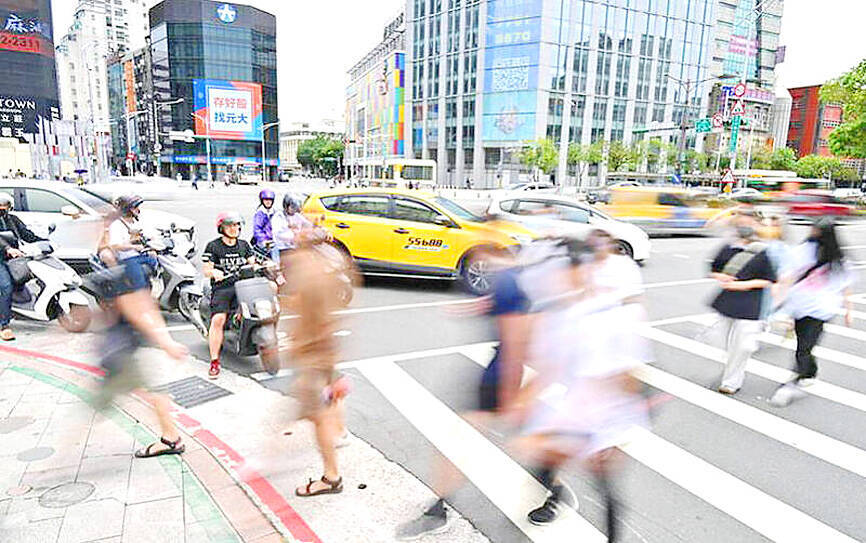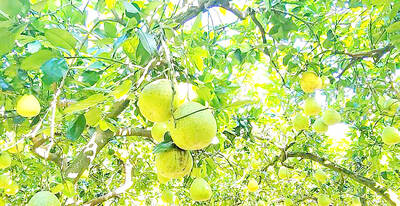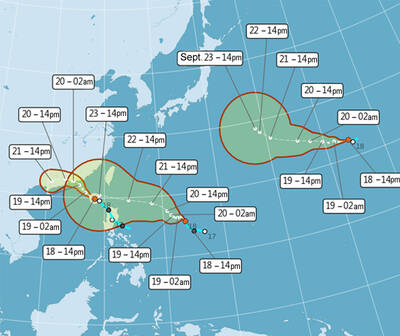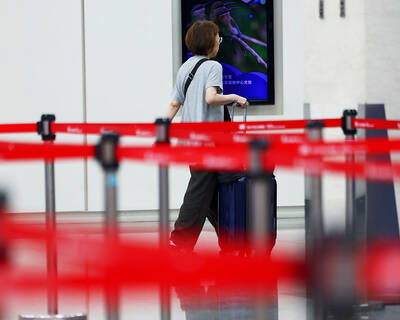Eight pedestrians were killed in 13 fatal city bus incidents in Taipei and New Taipei City from 2019 to last year, mainly due to drivers failing to stop at pedestrian crossings, data from the two local governments showed.
In Taipei, 1,259 traffic incidents involving city buses resulted in eight deaths and 601 people being injured in the five-year period, Taipei City Public Transportation Office data showed.
There were 345 incidents last year alone, nearly 30 percent of the total, while 2020 had the highest number of fatalities and injuries at four and 145 respectively, the data showed.

Photo: Tu Chien-jung, Taipei Times
Of the eight people who died, five were pedestrians who, based on law enforcement investigations and court rulings, lost their lives due to bus drivers failing to yield or notice vehicles in front of them, the data showed.
The other three died after drivers failed to turn in accordance with regulations or braked too hard, the data showed.
In New Taipei City, city bus drivers were found responsible for 1,568 traffic incidents, in which five people died, including three pedestrians, New Taipei City Government data showed.
There were 619 injuries in the five-year period, they showed.
The city last year reported three deaths and 190 injuries in incidents involving city buses, the highest yearly totals in the 2019-2023 period, they showed.
Three of the five people who died were pedestrians who were hit by city buses found to have been driving too fast at pedestrian crossings or had failed to give way.
The data from the two local administrations were released one day after a woman was killed after being trapped under one of two buses that collided in downtown Taipei.
Fifteen another people were injured in the collision, including eight people on a tour group from Thailand.

NEW AGREEMENT: Malaysia approved imports last year after nearly two years of negotiations and inspections to meet quarantine requirements, officials said Up to 3.6 tonnes of pomeloes from Taiwan cleared Malaysian customs on Friday, in the first shipment of Taiwanese pomeloes to Malaysia. Taiwan-grown pomeloes are popular in domestic and overseas markets for their tender and juicy taste, the Ministry of Agriculture’s Animal and Plant Health Inspection Agency said. The fruit is already exported to Japan, Canada, Hong Kong, Singapore and the Philippines, it added. The agency began applying for access to the Malaysian market in 2023, compiling data on climate suitability, pests and diseases, and post-harvest handling, while also engaging in nearly two years of negotiations with Malaysian authorities and submitting supplementary

PEAK MONTHS: Data showed that on average 25 to 27 typhoons formed in the Pacific and South China seas annually, with about four forming per month in July and October One of three tropical depressions in the Pacific strengthened into a typhoon yesterday afternoon, while two others are expected to become typhoons by today, Central Weather Administration (CWA) forecaster Lee Ming-hsiang (李名翔) said yesterday. The outer circulation of Tropical Depression No. 20, now Typhoon Mitag, has brought light rain to Hualien, Taitung and areas in the south, Lee said, adding that as of 2pm yesterday, Mitag was moving west-northwest at 16kph, but is not expected to directly affect Taiwan. It was possible that Tropical Depression No. 21 would become a typhoon as soon as last night, he said. It was moving in a

Tigerair Taiwan and China Airlines (CAL) today announced that several international flights were canceled or rescheduled due to Typhoon Ragasa. The Central Weather Administration (CWA) has maintained sea and land warnings for the typhoon. Its storm circle reached the Hengchun Peninsula (恆春半島) on Taiwan's southern tip at 11am today. Tigerair Taiwan said it canceled Monday's IT551/IT552 Taoyuan-Da Nang, IT606/IT607 Taoyuan-Busan and IT602 Taoyuan-Seoul Incheon flights. Tomorrow, cancelations include IT603 Seoul Incheon-Taoyuan, as well as flights between Taoyuan and Sapporo, Osaka, Tokyo Narita, Okinawa, Fukuoka, Saga, Tokyo Haneda, Nagoya, Asahikawa and Jeju. On Wednesday, the IT321/IT322 Kaohsiung-Macau round-trip would also be canceled. CAL announced that today's

About nine Taiwanese are “disappeared,” detained, or otherwise deprived of freedom of movement in China each month, the Mainland Affairs Council (MAC) said yesterday. Between Jan. 1 last year and Aug. 31 this year, 188 Taiwanese travelers went missing, were detained and interrogated, or had their personal freedom restricted, with some questioned in airports or hotel lobbies, the council said. In a statement ahead of the Mid-Autumn Festival, the council urged people visiting China for any reason to be highly vigilant and aware of the risks. Of the reported cases, 50 people were “disappeared” after entering China, 19 were detained and 119 had